If the zombie apocalypse hits tomorrow, don’t bother looking to humans for survival tips—just watch your cat. Cats already live like tiny survivalists: sneaky, self-sufficient, and way too clever to get caught off guard. While we’d be fumbling with canned food and Wi-Fi withdrawals, cats would be scaling rooftops, slipping through shadows, and thriving like it’s just another Tuesday. Here are 13 reasons our feline overlords would outlast us all when the undead take over.
1. Cats Have Superior Agility
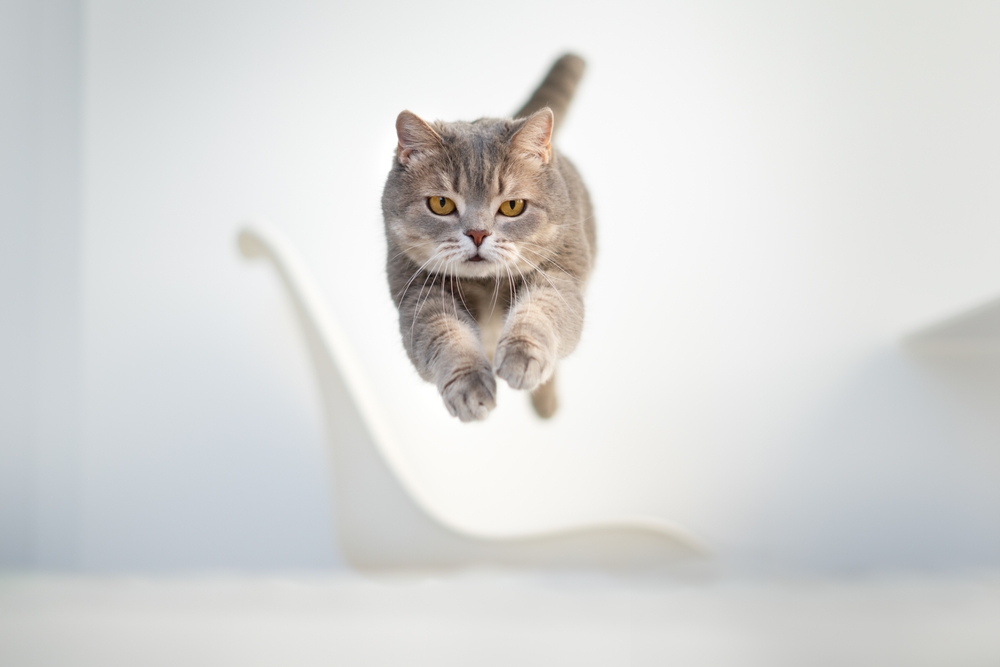
Cats are the undisputed gymnasts of the animal kingdom. Their bodies are built for quick escapes and high jumps, allowing them to get out of harm’s way faster than you can say “zombie attack.” It’s all thanks to a flexible spine and powerful leg muscles that give them that signature graceful leap. The Journal of Experimental Biology notes that this agility allows cats to leap up to six times their body length in a single bound. While you’re fumbling with makeshift weapons, your cat is already on the rooftop, surveying the chaos from a safe distance.
But it’s not just their physical prowess that makes them agile; it’s their minds, too. Cats possess a lightning-fast decision-making ability that kicks in as soon as a threat is perceived. They don’t stop to weigh the pros and cons—they act, and they act fast. This instinctual speed allows them to avoid danger without hesitation or second-guessing. Meanwhile, your indecisiveness could easily have you cornered by a band of brain-hungry zombies.
2. Cats Have Exceptional Night Vision
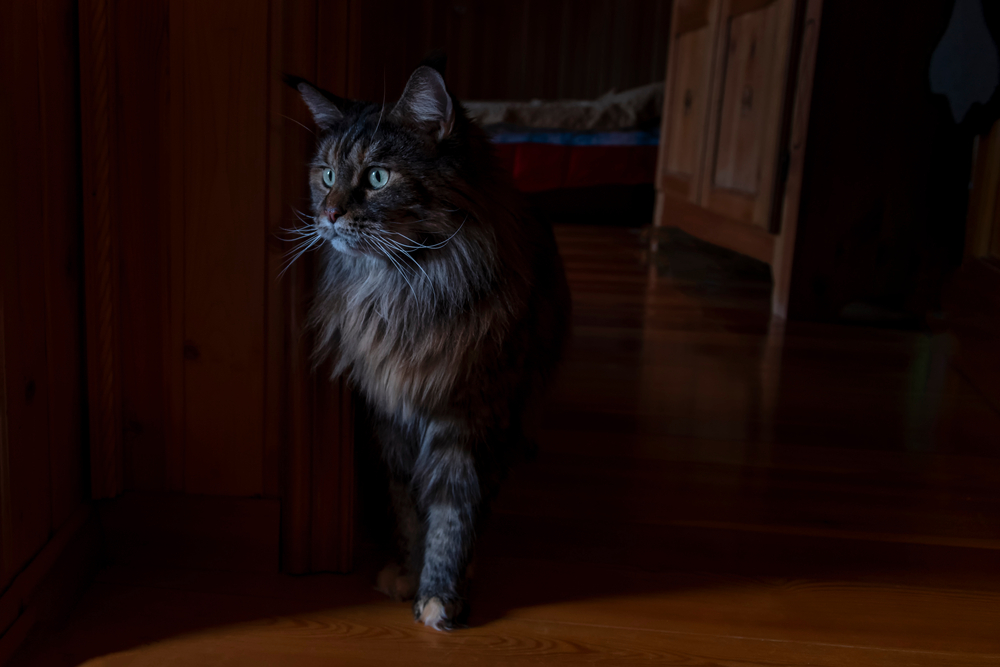
Cats are nocturnal by nature, making them natural-born night stalkers. Their eyes have a special layer of cells called the tapetum lucidum, which reflects light and gives them superior low-light vision. While you’re fumbling with a flashlight, your cat is navigating the dark with ease, avoiding ambushes and finding the best hiding spots. They can spot movement in the darkness that you wouldn’t even notice in daylight. Their ability to see in the dark not only helps them hunt effectively but also evades threats that would leave you stumbling.
This night vision means that your cat is ready for the cover of darkness, which is when zombies are likely to be most active. While you’re likely to be huddled indoors after sunset, your cat is confident enough to roam freely. They can assess risks and adjust their path without needing a single lumen to guide them. With the night as their ally, cats turn darkness into their playground, leaving you behind in your flashlight’s feeble beam. Your likelihood of survival dwindles as your feline friend makes it look all too easy.
3. Cats Move Silently
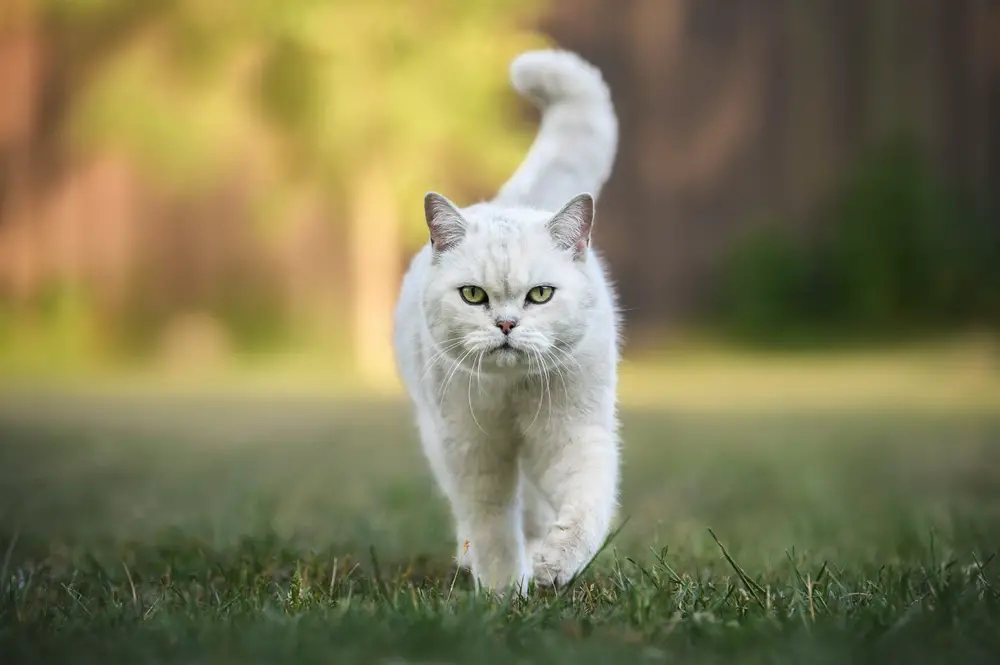
Have you ever noticed how your cat seems to appear out of nowhere? That stealthy silence is no accident; it’s an evolutionary marvel. Cats walk on their toes, a trait known as digitigrade locomotion, which allows for silent and stealthy movement. According to Animal Planet, this makes them expert hunters and superb at avoiding detection. While you’re clomping around in boots, your cat is a whisper in the wind, unseen and unheard by any lurking dangers.
Silence is an invaluable asset when it comes to avoiding confrontation with the undead. Your cat’s paw pads act like built-in shock absorbers, cushioning each step and allowing for the quietest approach. In a world where noise can be the difference between life and death, this feline talent isn’t just impressive—it’s downright vital. While you might accidentally alert the entire horde with a sneeze, your feline companion is already slipping undetected past potential perils. Their ninja-like silence will keep them safe and unseen, even in the tensest situations.
4. Cats Have Heightened Senses
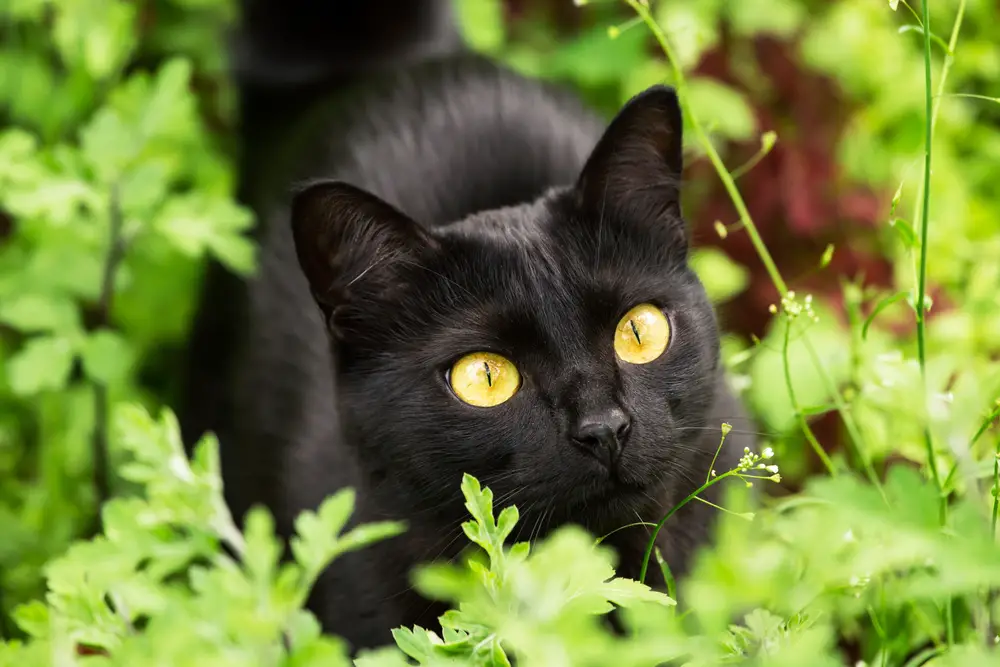
Cats come equipped with a sensory toolkit that puts our human faculties to shame. Their sense of smell is fourteen times stronger than ours, enabling them to detect danger long before it becomes visible. Acute hearing allows them to pick up sounds as faint as a mouse scurrying behind a wall. This makes them excellent early-warning systems when you’re holed up in a precarious location. While you might overlook critical signs, your cat’s finely tuned senses will alert them—and by extension, you—to any approaching threats.
Their sensory perception extends beyond just hearing and smell; cats are also remarkably attuned to vibrations. They can sense seismic shifts in their environment, alerting them to approaching footsteps or the distant rumble of an engine. This acute awareness helps them to make swift decisions in crisis situations, giving them a crucial survival edge. You, on the other hand, might miss these subtle cues, putting yourself at risk of surprise attacks. Trust in your cat to keep you aware of what your own senses might miss.
5. Cats Are Independent By Nature
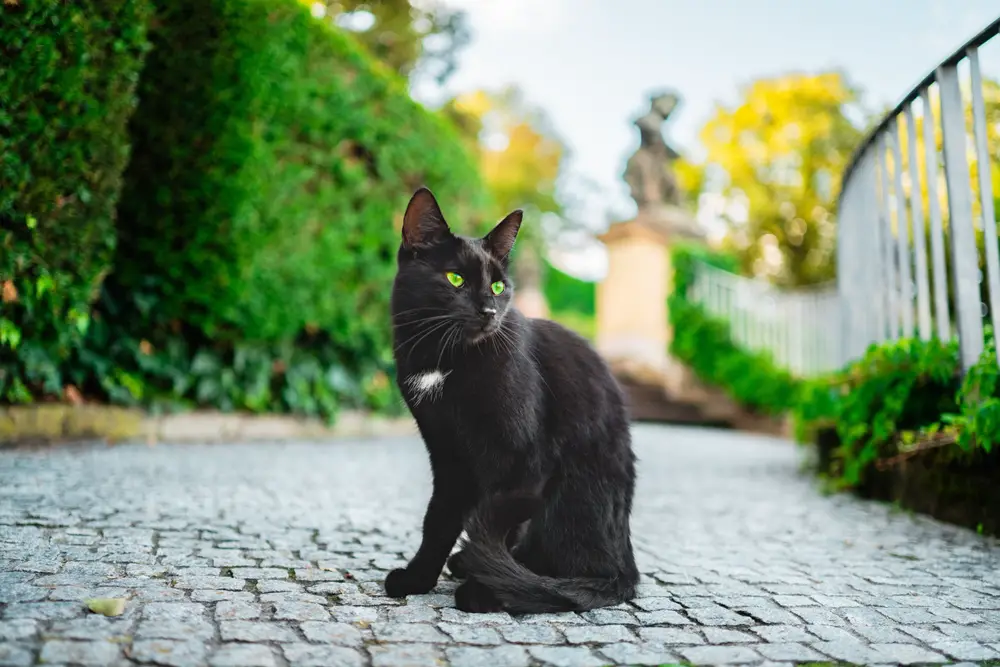
Unlike people, cats are fiercely independent, which bodes well in a world where every man—and feline—is for themselves. Cats don’t need to rely on a community to survive; they’re perfectly happy to go it alone. In fact, Psychology Today highlights that their solitary nature allows them to think and act without waiting for backup. This independence makes them less likely to hesitate when the going gets tough. While you’re scrambling to organize a group consensus, your cat is already enacting a personal exit strategy.
The independent streak in cats isn’t just about survival; it’s a lifestyle. They have the ability to hunt for their own food, find their own shelter, and generally thrive without assistance. This is a trait many people lack, as we often depend on others for support and reassurance. Your cat’s ability to fend for itself in every aspect of survival is a crucial asset in a world gone mad. While you might feel lost without your social network, your cat is utterly unfazed, navigating their new world with aplomb.
6. Cats Are Small and Quick
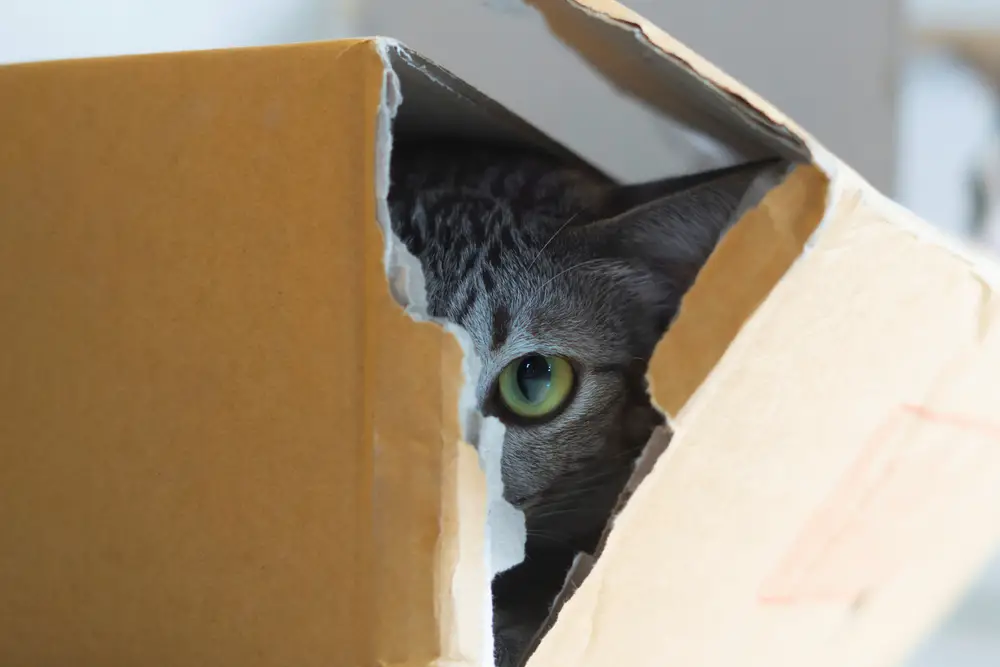
Cats possess an uncanny ability to squeeze into the smallest spaces, a trait that is incredibly useful when escape routes are limited. Their flexible skeletons and lack of a collarbone allow them to navigate tight spots with ease. This enables them to find shelter in places a human could never reach, effectively hiding from threats. While you’re scouring open terrain for safety, your cat is already tucked away in a nook only they could find. Their small size also allows for faster escapes, darting through spaces you wouldn’t dare attempt.
This petite stature also means they’re less likely to attract attention. Their ability to move swiftly and silently contributes to their low profile, making them less of a target in a crowd. While people might stand out like sore thumbs, cats can blend into their surroundings seamlessly. Their quick movements mean they can scuttle away from danger before it even sees them. This combination of size and speed is a crucial survival advantage, giving them another layer of protection against the undead.
7. Cats Are Resourceful
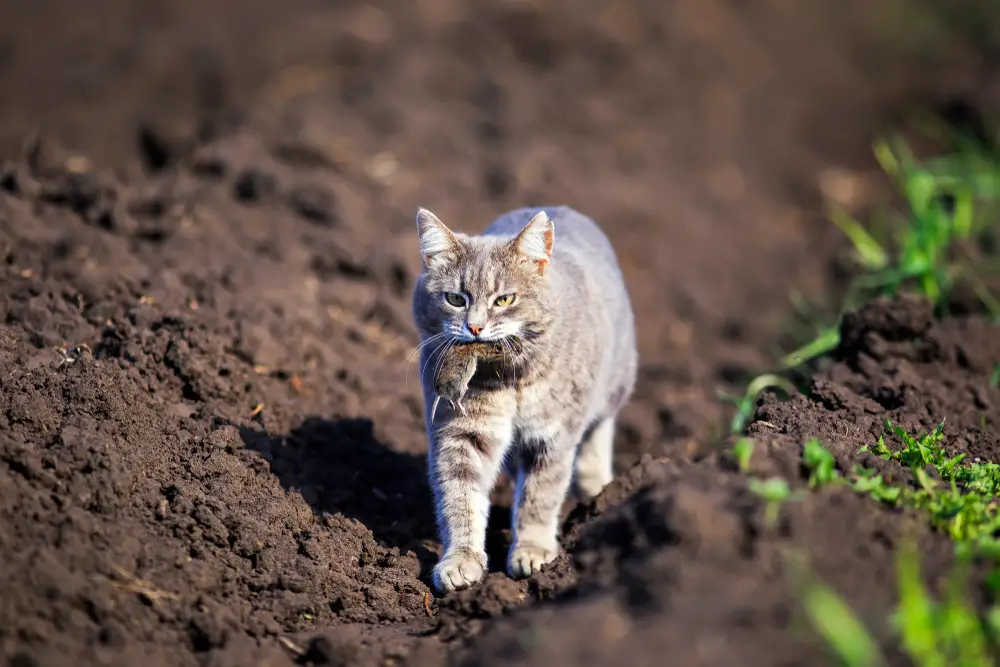
When it comes to finding food in a barren landscape, cats are resourceful scavengers. They have a natural ability to hunt small prey or scavenge when necessary, a skill honed over millennia of evolution. NPR points out that even domesticated cats retain this instinct, making them adept at finding nourishment in the wild. While people fret about dwindling supplies, your cat is likely already tracking a rodent or raiding a neighbor’s pantry. Their resourcefulness in obtaining food ensures they won’t go hungry, even when resources are scarce.
Cats also possess the ability to thrive on minimal sustenance. They don’t require the same caloric intake as humans, making it easier for them to remain nourished. Their bodies can efficiently utilize what little they find, maximizing their chances of survival. This contrasts sharply with our own needs, which often leave us vulnerable to starvation. Your cat’s natural scavenging skills make them self-sufficient in a way that few people can claim, especially in a world where resources are fiercely contested.
8. Cats Can Adapt To Any Situation
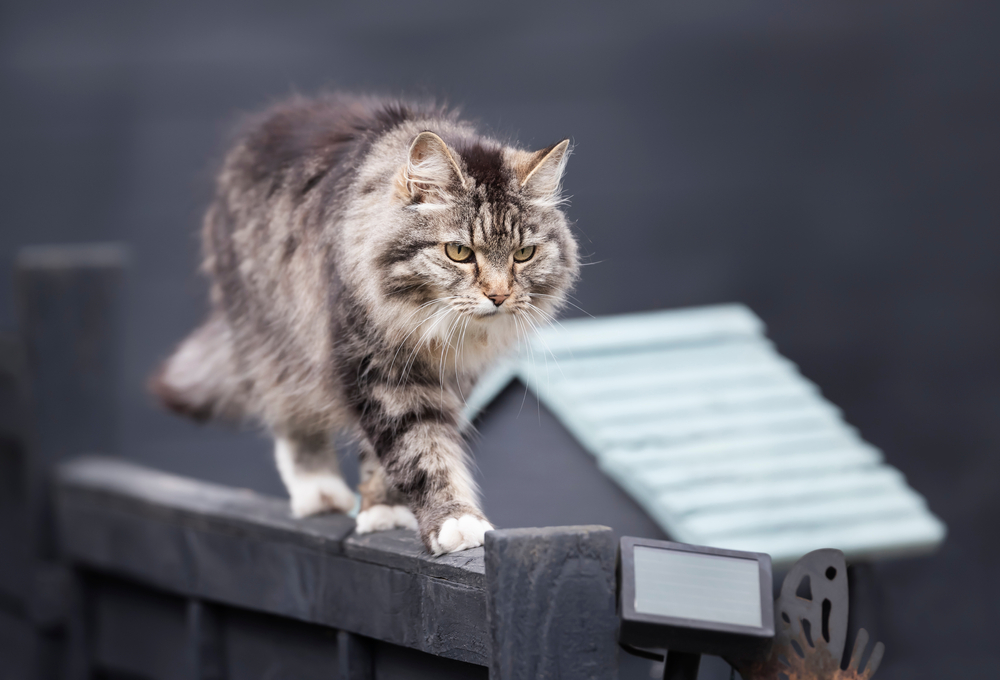
Cats are masters of adaptation, able to adjust to new environments with remarkable ease. Whether it’s a sudden move from the city to the countryside or a zombie-infested wasteland, cats are quick to acclimate. Their innate curiosity drives them to explore and understand their surroundings, aiding their survival. While you might struggle with change, your cat thrives on it, finding opportunities where others see only obstacles. This adaptability gives them a significant edge when the world is turned upside down.
Their ability to adapt isn’t just about physical movement; it’s psychological too. Cats can quickly reassess situations and alter their behavior accordingly, ensuring they stay one step ahead. This mental flexibility allows them to remain calm under pressure, avoiding panic and rash decisions. While people might be paralyzed by fear or uncertainty, your cat is already plotting its next move. Their adaptability is a crucial component of their survival strategy, enabling them to navigate a chaotic world with confidence.
9. Cats Have Strong Survival Instincts
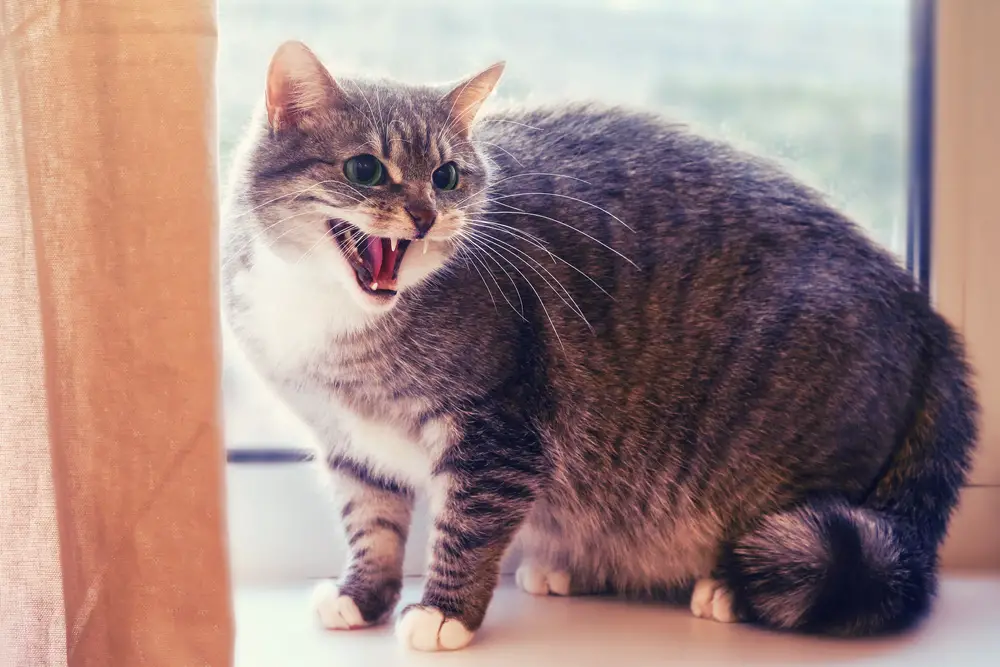
Instinctually driven, cats have a survival mode that kicks in with impressive precision. They possess an innate ability to sense danger and react without hesitation, a trait developed over centuries of evolution. This instinctual behavior ensures they remain hyper-aware of their surroundings, constantly scanning for potential threats. While you’re busy processing the chaos, your cat is already several steps ahead, employing its survival toolkit. This finely tuned instinct is something many people lack, giving cats a distinct advantage in high-stakes scenarios.
These instincts aren’t just reactionary; they’re proactive. Cats don’t just wait for danger to approach—they actively avoid it. Their keen senses and quick reflexes allow them to stay out of harm’s way, making snap decisions that keep them safe. While you might be lured into risky situations, your cat’s innate caution shields them from unnecessary danger. Their survival instincts aren’t just about self-preservation; they’re also about outsmarting the threats that loom around every corner.
10. Cats Are Low Maintenance

Cats are low-maintenance creatures, a trait that makes them highly efficient survivors. Unlike people, cats don’t require elaborate setups to thrive; they can make do with the bare essentials. This minimalistic lifestyle means they’re less bothered by the scarcity of resources in an apocalyptic world. While you’re scrambling for supplies, your cat is perfectly content with a scrap of food and a cozy corner. Their ability to thrive on little makes them uniquely suited for the challenges of a harsh new reality.
This low-maintenance approach extends to their social needs as well. Cats don’t rely on a network of support, meaning they’re less affected by the loss of societal structures. Their solitary nature allows them to focus solely on survival, unhindered by the distractions of interpersonal relationships. While your sense of community is in turmoil, your cat remains steadfastly self-sufficient. Their independence and low requirements for comfort ensure they remain resilient and robust in the face of adversity.
11. Cats Use Their Energy Wisely
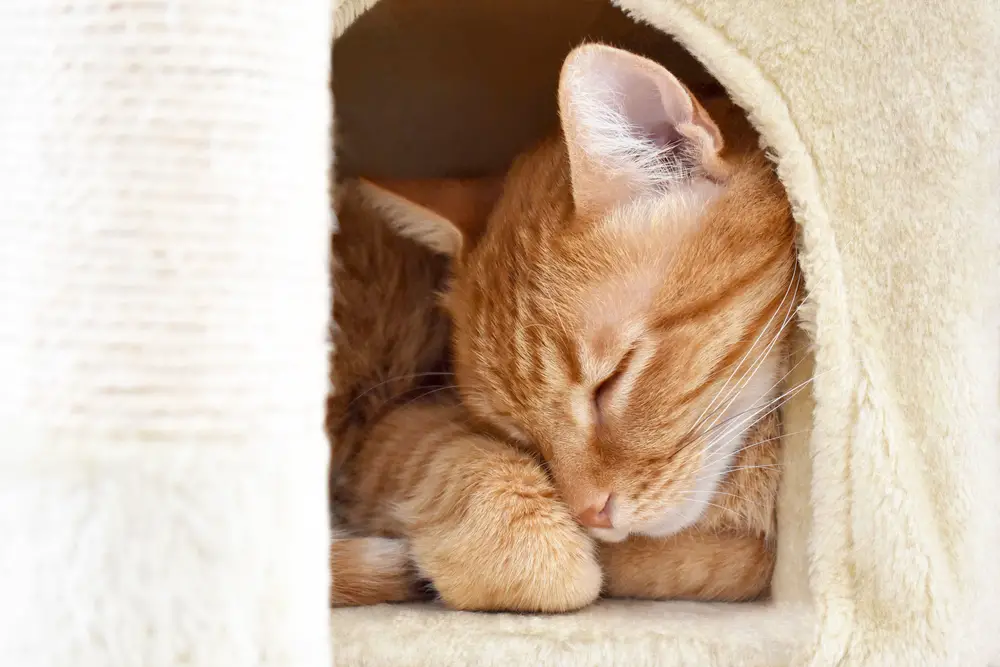
Cats excel at conserving energy, a skill that serves them well in survival situations. They have a knack for balancing activity with rest, ensuring they’re always ready for action when needed. By sleeping for up to 16 hours a day, cats store energy for hunting or escaping threats. While you’re expending energy on stress and overthinking, your cat is recharging its batteries. This efficient use of energy ensures they’re always at peak performance, ready to leap into action.
Their ability to conserve energy doesn’t mean they’re lazy; it’s a calculated survival strategy. Cats know when to lie low and when to take action, maintaining a delicate balance between rest and activity. This efficiency keeps them sharp, allowing them to make the most of their waking hours. While people might waste energy on unnecessary tasks, cats focus only on what’s essential. Their strategic energy use is just another reason why they’re destined to outlast us in a world overrun by zombies.
12. Cats Are Immune to Stress
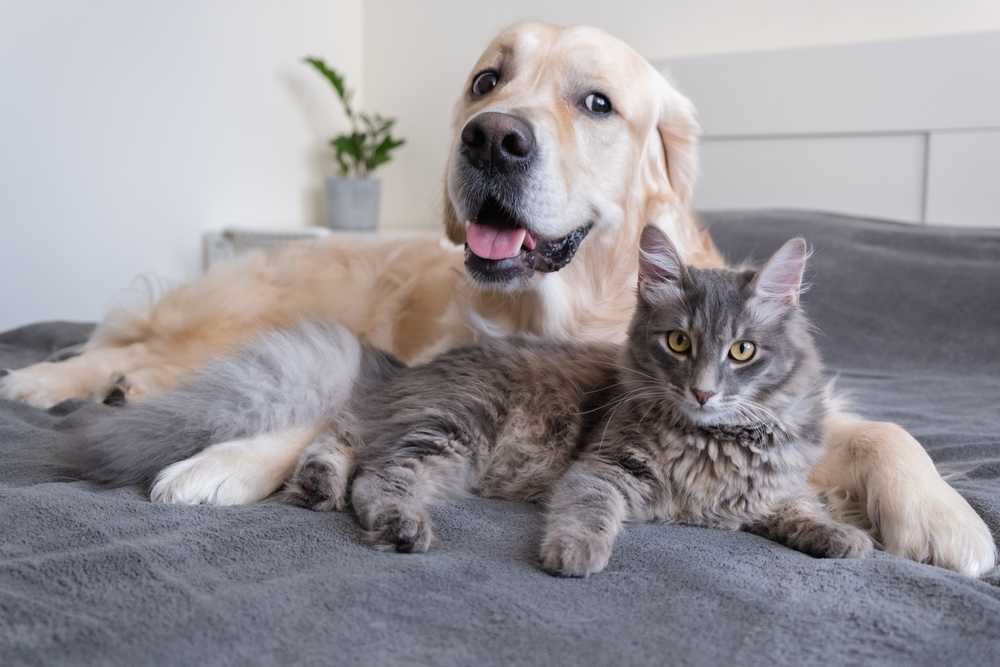
Cats have a remarkable ability to remain calm under pressure, a trait that serves them well in tense situations. Their laid-back demeanor helps them avoid the pitfalls of stress, allowing them to think clearly and act decisively. Unlike people, who often buckle under pressure, cats keep their cool in the most chaotic scenarios. This composure gives them a strategic advantage, enabling them to make sound decisions when others might panic. While stress diminishes your survival chances, your cat’s serenity ensures they remain unflappable.
This immunity to stress doesn’t mean they’re oblivious to danger; rather, it’s a testament to their mental fortitude. Cats can assess situations calmly, weighing risks without the cloud of anxiety that often plagues people. Their ability to filter out unnecessary stressors allows them to focus on what truly matters—survival. While you’re grappling with fear and uncertainty, your cat is navigating its environment with a clear head. This level-headedness is a key factor in their ability to outlast others in a high-pressure world.
13. Cats Have Strong Territorial Instincts
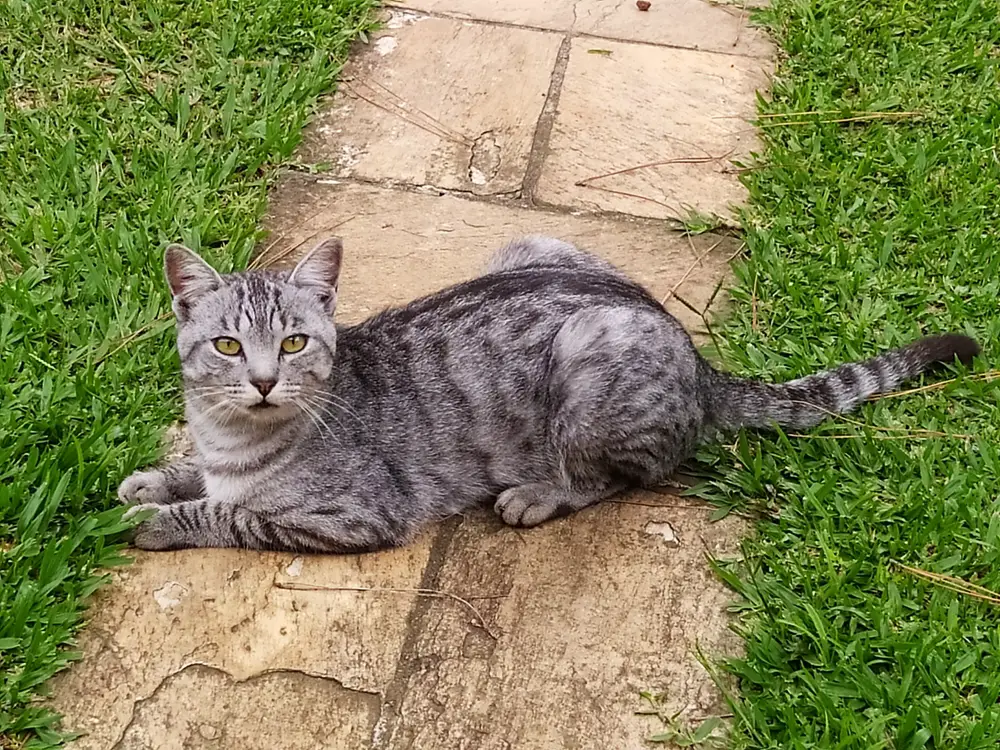
Cats have a strong sense of territory, which makes them exceptional at defending their home turf. This instinctual behavior ensures they’re always aware of their surroundings, marking boundaries and keeping intruders at bay. While people might overlook potential threats, your cat is busy establishing a secure perimeter. This territorial instinct grants them an innate understanding of their environment, essential for survival in a zombie-infested world. While you’re trying to find your footing, your cat has already claimed its domain.
Their territorial nature isn’t just about defense; it’s also about resource management. Cats are skilled at identifying and protecting valuable resources within their territory, ensuring they have what they need to survive. This keen awareness of their environment allows them to maximize their chances of survival, even in a resource-scarce world. While people might struggle to adapt to new settings, cats have already mapped out their surroundings. Their territorial instincts give them a strategic advantage, keeping them one step ahead of potential threats.
14. Cats Are Fast Learners
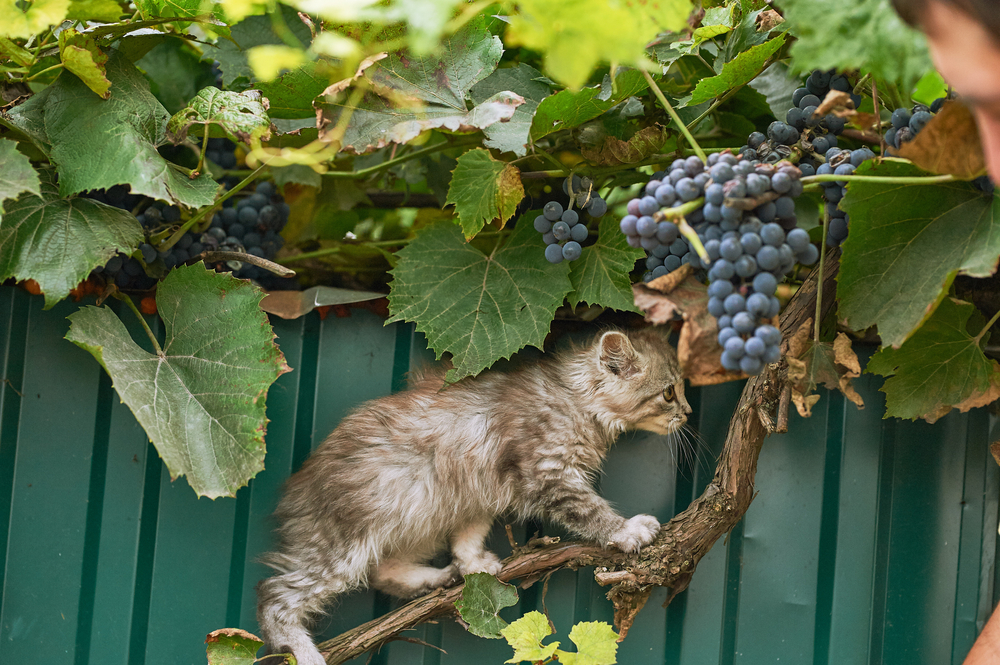
Cats are incredibly quick learners, able to adapt to new situations with ease. Their natural curiosity drives them to explore and experiment, picking up new skills as they go. This adaptability allows them to respond to challenges with agility, making them formidable survivors. While people may take time to adjust, cats quickly assimilate new information and apply it to their survival strategies. Their ability to learn on the fly ensures they remain one step ahead in a constantly changing world.
Their learning isn’t limited to physical skills; cats also excel at understanding complex social dynamics. They can read other animals—and people—effectively, using this information to their advantage. This social intelligence allows them to navigate complex interactions, avoiding conflicts and seeking beneficial alliances. While people might misinterpret social cues, cats are adept at gauging the intentions of those around them. Their ability to quickly learn and adapt is a key component of their survival arsenal, ensuring they’re always prepared for whatever challenges come their way.
15. Cats Are Natural Predators
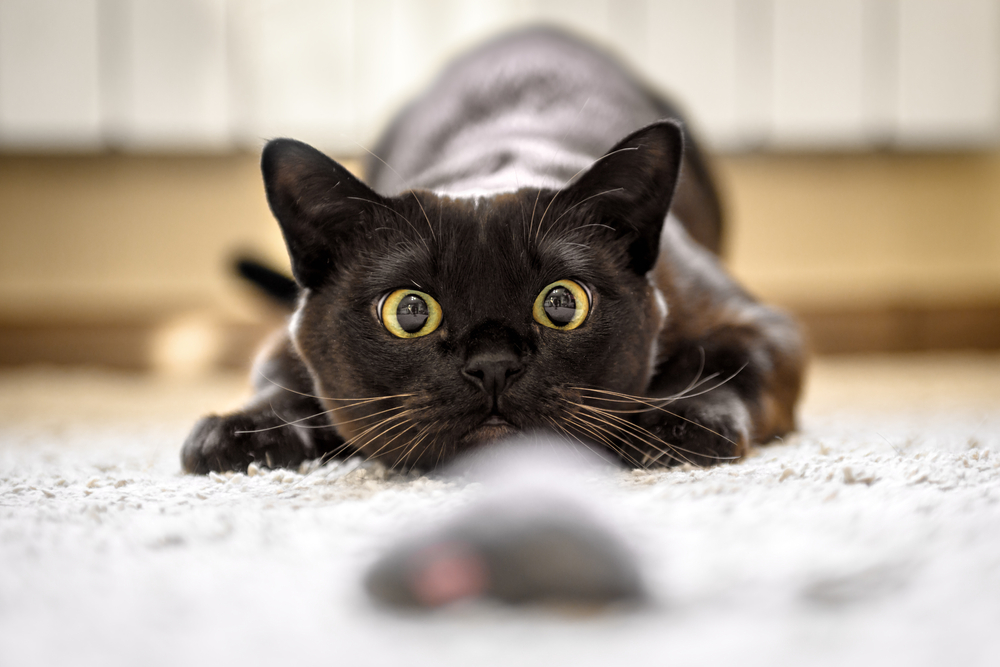
As natural predators, cats possess instincts that ensure they’re always on the hunt—or on the defensive. Their predatory nature gives them an edge in identifying and responding to threats, a crucial skill in a world overrun by zombies. While people might hesitate in the face of danger, cats are primed to react swiftly and decisively. Their hunting skills are honed through years of evolution, making them formidable foes—and agile survivors. While you might wrestle with your primal instincts, your cat has already embraced its predatory prowess.
This predatory instinct isn’t just about aggression; it’s also about strategy. Cats know how to stalk, wait, and pounce, using their skills to secure food and safety. Their ability to anticipate and react to prey—or threats—ensures they remain at the top of the food chain. While people might falter in a world where survival is paramount, cats thrive in these high-stakes scenarios. Their natural predatory instincts make them consummate survivors, adept at navigating a world fraught with danger.
